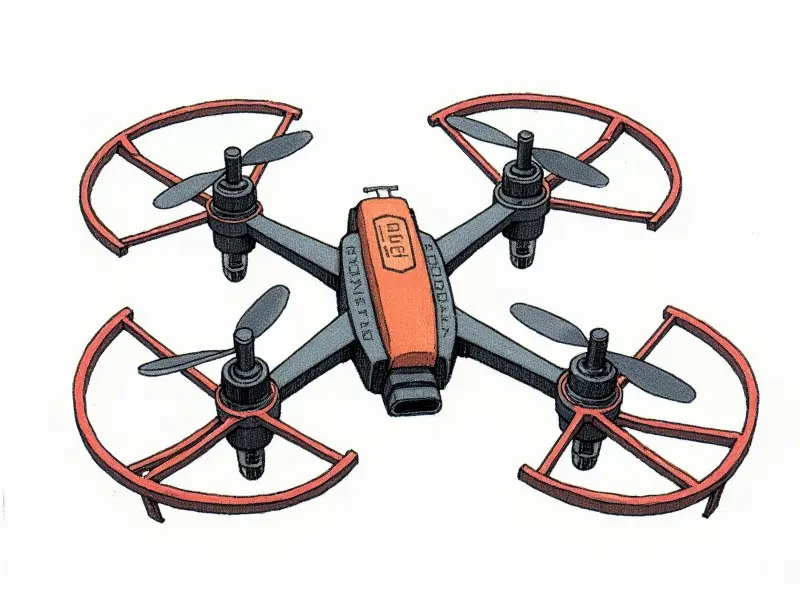Motor voltage rating?

Understanding Voltage Ratings in RC Motors
The voltage rating of a motor is one of the most crucial specifications when it comes to selecting the right power source for your remote-controlled (RC) vehicle. The voltage affects how efficiently and effectively the motor will perform, dictating everything from speed and torque to durability and lifespan.
Optimal Voltage for RC Quadcopter Motors
Selecting the correct voltage range is essential for achieving optimal performance in quadcopters. A higher voltage can increase thrust but may also lead to overheating if not balanced properly with current draw.
- Voltage Range: Commonly, 3S (11.1V) to 4S (14.8V)
- Battery Compatibility: Lithium Polymer (LiPo) batteries are preferred for their high discharge rates and lightweight
- Performance Considerations: Higher voltage provides more power but requires careful thermal management to avoid damage.
FPV Racing Drone Motor Voltage Guide
For FPV racing drones, selecting the right motor voltage is critical for achieving the desired balance between speed and agility. The optimal range typically falls within 3S-4S battery packs.
- Voltage Range: Ideal performance around 11.1V to 14.8V
- Motor Type: Brushless motors are commonly used for their efficiency and power-to-weight ratio
- Battery Recommendations: High-discharge LiPo batteries with C ratings above 50C for sustained performance.
Best Voltage Range for RC Airplane Motors
The voltage range for RC airplane motors can vary significantly depending on the type of aircraft and desired flight characteristics. Proper selection ensures optimal lift, speed, and maneuverability.
- Voltage Range: Typically 3S to 6S (11.1V - 25.2V)
- Aircraft Considerations: Smaller planes may use lower voltage packs while larger models benefit from higher voltages.
- Battery Type: Use high-capacity LiPo batteries for endurance flights and high-discharge cells for aerobatic maneuvers.
RC Helicopter Motor Voltage Explained
The voltage rating of an RC helicopter motor is vital, as it directly influences the rotor's RPM and overall stability. Proper selection ensures smooth flight dynamics and efficient power delivery.
- Voltage Range: Commonly 3S to 4S (11.1V - 14.8V)
- Motor Characteristics: Brushed motors are often used for their reliability and torque, while brushless motors offer higher efficiency.
- Battery Compatibility: Choose batteries with high discharge rates to support quick response times and sustained operation.
Common Mistakes with RC Motor Voltages
Misunderstanding motor voltage ratings can lead to several common pitfalls that affect performance, safety, and longevity of your RC equipment. Understanding these mistakes is crucial for optimal usage.
- Overheating: Excessive current draw due to high voltage can cause motors to overheat and potentially fail
- Insufficient Power: Using underpowered batteries may limit the motor's ability to deliver adequate thrust or lift.
- Battery Compatibility Issues: Incompatible battery types can lead to inconsistent performance and potential damage.
How Voltage Affects RC Motor Performance
The relationship between voltage and motor performance is complex but essential for achieving optimal results. Higher voltages generally equate to higher RPMs, which translates into increased speed and power output.
- RPM: Directly proportional to applied voltage; higher voltage equals higher RPM
- Torque: Affected by the motor's design and internal resistance; not always directly linked to voltage alone.
- Efficiency: Proper balance between voltage and current draw ensures maximum efficiency without compromising power delivery.
What Voltage Rating Should Your RC Motor Have?
Determining the appropriate voltage rating for your motor depends on various factors such as aircraft type, intended use case, and performance requirements. Careful consideration of these elements will help you make an informed decision.
- Type of Aircraft: Different models have unique power needs based on their design and size.
- Desired Performance: Consider whether speed or endurance is more important for your application.
- Battery Capacity: Ensure that the chosen battery provides sufficient capacity to match motor requirements.
Maximizing Performance with Correct Motor Voltage
To achieve peak performance from your RC motor, it's essential to carefully select and balance voltage settings. Proper tuning can enhance efficiency, responsiveness, and overall durability of the system.
- Tuning Parameters: Adjust propeller size, pitch, and ESC (Electronic Speed Controller) settings accordingly
- Diagnostics: Regularly monitor motor temperature and current draw to ensure optimal operation
- Maintenance: Keep motors clean and well-lubricated for consistent performance over time.
Why Voltage Matters in RC Motor Performance
The significance of voltage ratings lies in their direct impact on motor efficiency, power output, and operational safety. Understanding these factors is key to making informed decisions that enhance your RC experience.
- Efficacy: Properly matched voltage ensures motors run efficiently without waste
- Safety: Avoiding overheating and overcurrent conditions protects equipment from damage
- Longevity: Optimal settings prolong motor life by reducing stress on components.
Best Practices for Setting RC Motor Voltage
To ensure optimal performance and longevity of your RC motors, follow these guidelines when setting voltage ratings. Proper selection and management of power sources are fundamental to achieving reliable results.
- Research: Understand the specific requirements of your motor and aircraft type
- Testing: Experiment with different voltages within recommended ranges to find ideal settings
- Maintenance: Regularly inspect motors for wear and tear, keeping them clean and lubricated.
By adhering to these principles and best practices, you can maximize the performance of your RC motor while ensuring safe and efficient operation. Proper voltage management is a critical aspect of maintaining high-quality equipment in the fast-paced world of radio-controlled vehicles.
Conclusion
In summary, selecting the correct voltage rating for your RC motor is crucial to achieving optimal performance, safety, and longevity. Understanding the nuances between different types of aircraft and their specific power needs will enable you to make informed decisions that enhance your overall RC experience. By following best practices and maintaining proper care, you can ensure reliable operation and enjoyment of your radio-controlled vehicles.

